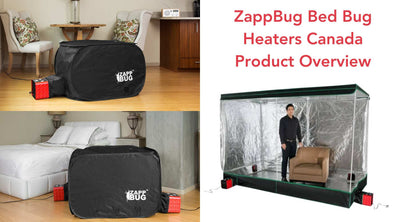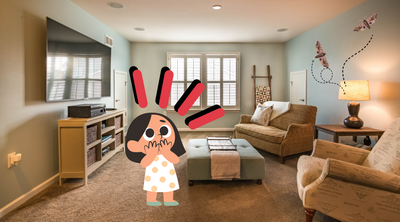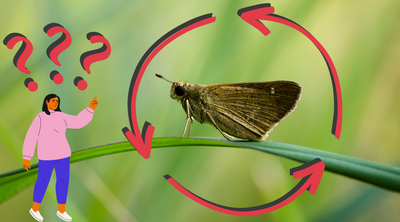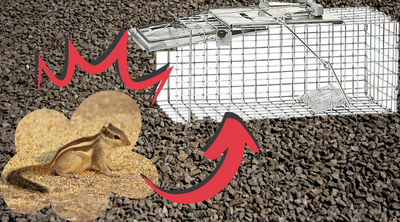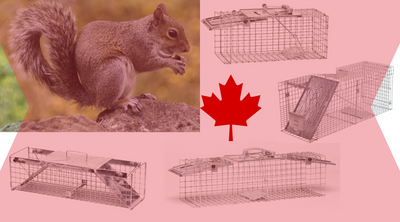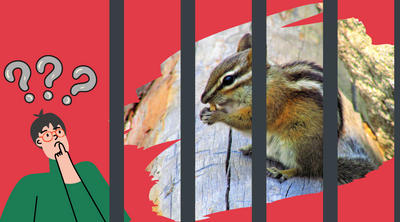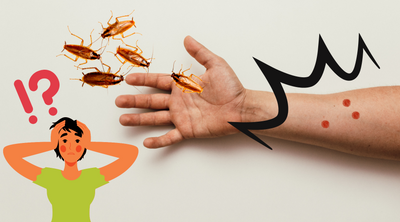Spiders are creepy crawlies that can become a serious nuisance around and inside your home. Even though spiders might not really cause as much property damage as other pests, they can still be quite annoying and sometimes, even dangerous.
There are spiders that are found to be venomous with bites that can result in severe reactions. Such reactions are often most severe in the elderly or children, or people who have weak immune systems. This is why many people want to know how to get rid of spiders in their homes and keep them away for good.
You can kill spiders with pesticides and chemicals but most of the time, these can be dangerous for you and your family and even your pets, not to mention that they are not eco-friendly as well. The first step to eliminate the spiders in your home is to know where to find them.
What Causes Spider Infestation?
When the temperature drops, spiders tend to get more active as they leave their hiding spots and look for a mate. Many of them may die off once the season gets warmer but some of them hibernate until the next spring.
More often than not, these spiders stay out of sight and hidden but once they start searching for their mate, you can see them on screen doors, walls, and indoors. They don’t mean to bite yet some potential risks are involved.
In general, spiders look for food and humans are not included in their menu. It means that even if your home or property has lots of spiders, they probably found out that your property is an ideal place for catching prey.

Where to Search for Spiders in and Around Your Home
Many people are just scared of spiders and some even suffer from arachnophobia. Even if spiders don’t like announcing themselves because they are good at hiding, it is quite hard to avoid taking notice of them at least once in your life.
Well, there is no need to worry because there are a few spots in your home that are popular hangouts for spiders. Below are the most common locations around and in your premises where you can find spiders.
· In your vegetation
Among the very first things, you have to do if you suspect that your house has, a full-on infestation of spiders is to look around and check outside. In general, spiders love building their webs outdoors wherein they can feast upon more insect prey. Search for webs in bushes.
If your home is surrounded by bushes and hedges, one of the initial signs that there is an infestation of spiders in your hands is the prevalence of spider webs in the bushes. It may mean that spiders lay eggs and hatch, with spiderlings searching for a different spot to create their own web that may make them look for entry points to your home.
If they can, spiders also love to hide. They are shy in general and they search for a spot to create their web where they can catch more food while remaining hidden from possible predators.
Their webs can also be hidden in attics, basements, and spaces. They search for corners either down low or up high.
· In your garage
Your home’s garage is another likely spot for spider infestations. Don’t forget to check it carefully and seal every entry point including holes or cracks spiders may use for gaining access to the garage.
· In your piles of clutter
Undisturbed and quiet places are ideal spots where spiders can thrive as these give them the chance to hunt for cockroaches, flies, mosquitoes, and others. Hoarders usually keep lots of unused and old stuff in their attic, garage, or basement.
These kinds of places can gather more rubbish in time and this means that there is almost 100% chance that spiders will hide out there. There is just one way to solve this problem and that is to clear and throw away your junk all the time.
· Under your bathroom or kitchen sink
Spiders also need water for their survival so they are usually found hiding in dark areas near your plumbing. Make sure that you always clean and organize the areas under the sink to deter spiders. Some other hiding places they love include closets, under stairs, stairwells, and crawl spaces.
· Rocks and woodpiles
The most dangerous of spiders love to hide under piles of wood and rocks. If you usually store your woodpiles somewhere inside your house, chances are they can help in giving spiders an opportunity to gain access to your rooms. You need to check properly any unnecessary debris piles from your backyard. But, make sure you take extra care when you move rocks and load the fireplace.
To prevent this, always make it a point to clean up and clear away any unwanted piles of debris in your yard. Whether your woodpiles are stored outdoors or indoors, covering them tightly with plastic material can help in these two situations.
· Under furniture pieces
There are spiders that have their specific hiding spots for nighttime and daytime. Spiders hate disturbances. However, they like privacy and that darkness under your sofa and table attract spiders. You can give these spots a good vacuum treatment to get rid of signs of spiders.
· In corners close to the ceiling
It is another of the most common areas where you can spot spiders in your house. While these are not exactly hiding places, they love spending their time in these corners as it easier for them to find prey.
If you fail to spot and get rid of them in time, they may end up laying eggs and spreading their reign. Always be proactive and don’t forget to vacuum webs out of ceiling corners on a regular basis.
· Window sill
Windowsills or those spots between your window and the screen are among the most common spots that gather cobwebs and webs in your house. This kind of problem is often troublesome when summer months kick in and you want to open your windows to let fresh air in only to find a spider staring at you from the windowsill.
You can buy spider killers from the local department store to help you address the infestation. This can be sprayed around the whole window perimeter outside and do it on the inside as well while paying close attention to cracks or crevices.
Use a strongly scented pine cleaner for cleaning the sills from top to bottom. Spiders don’t like its smell and it serves as a natural spider repellant.
What to Do When Your Home Becomes the Home of Spiders
Even though the mere thought of a crawling and creepy spider makes you wish to turn back and run away as far as possible, there are several facts you have to keep in mind. For starters, spiders don’t cause damages on properties. They even eat other insects and pests that might cause damage such as carpenter ants, termites, stink bugs, and moths.
There are only a few types of spiders that can inject a bite that can be dangerous to people and most of the time, spiders almost choose to avoid humans instead of attacking them, with biting merely their last form of defence. Even though deaths related to spider are rare, you need to seek medical help if there are reasons for you to believe that you have been bitten by a brown recluse or black widow spider.
Make Your Home Less Appealing to Creepy Crawlies
In spite of the fact that the spiders can help in controlling populations of other unwanted insects, many people don’t really want to have them crawling around their houses. The best way to prevent spiders is to make your house less appealing to them.
Seal All Possible Entry Points
For starters, you can seal any possible entry point such as gaps and cracks along your home’s foundation. Make sure that you keep your screens, doors, and windows sealed. Try to prevent other insects from residing inside your home. You should also reduce clutter to lessen their potential hiding places.
Keep Your Home as Clean as Possible at All Times
In general, ensuring that your home is clean is a great way to reduce the number of pests creeping around your home. As far as spiders are concerned, a clean home will not just provide fewer spots where spiders can hide since this will also reduce the chances that tiny insects will thrive for spiders to feed on. Without reliable food sources and with lesser hiding spots, spiders will find it harder to linger and stay.
There are also web-building spiders that build their house high up in ceiling corners. Look around because you can use your vacuum cleaner to suck up these webs or use an extending duster at least to knock them down.

